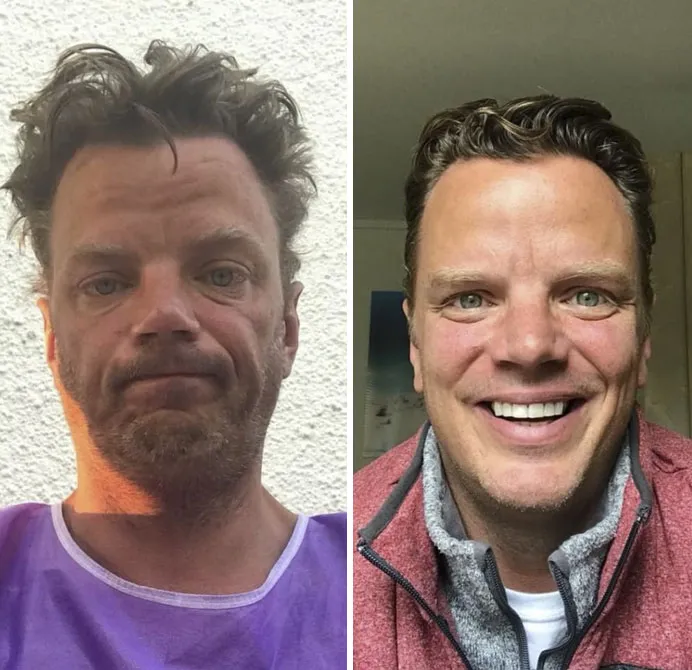For too long, men have been told to measure strength by endurance, control, and silence. They’ve been told that showing struggle means losing power, that second chances are for the weak, and that self-reliance means never asking for help. But as addiction recovery reshapes the conversation around masculinity, a different kind of strength is coming into view. It’s the strength to admit the truth, to rebuild, and to face the world without the buffer of substances that once offered comfort or escape.
Men in recovery are quietly rewriting what it means to be resilient. They’re proving that strength doesn’t come from hiding pain but from walking through it. Sobriety isn’t about perfection. It’s about persistence, consistency, and choosing to show up even when no one’s watching.

Table of Contents
The Culture Shift In Men’s Recovery
The recovery landscape has changed dramatically in the past decade. What once existed mostly behind closed doors is now being discussed openly in workplaces, podcasts, and men’s groups across the country. There’s been a quiet rebellion against the outdated notion that men must soldier through life on their own.
Younger generations, especially, are pushing for openness. They’re not afraid to talk about anxiety, trauma, or self-doubt. And while the phrase “mental health awareness” gets thrown around a lot, what’s really happening is deeper than that. Men are starting to understand that addiction doesn’t make them broken. It’s often the result of unmet pain, isolation, or unrealistic expectations of toughness.
Unpacking The Link Between Trauma And Addiction
For many men, addiction isn’t just about substances. It’s about escaping from something buried deeper. The connection between trauma and addiction runs through countless recovery stories. It’s not always the big, dramatic trauma that people expect. Sometimes it’s the subtle, persistent kind: growing up with emotional neglect, pressure to succeed, or the inability to express sadness without judgment.
When men are taught to suppress pain instead of process it, that pain doesn’t disappear. It mutates. It finds outlets in alcohol, pills, gambling, or high-risk behaviors that temporarily numb what hasn’t been healed. Recovery begins when that silence breaks. When a man finally admits, “I’m not okay,” something powerful happens. That admission opens the door to real healing.
This kind of vulnerability isn’t a weakness. It’s ownership. It’s the moment strength becomes real, not the muscle-flexing kind, but the kind that rebuilds an entire life from the ground up.
Building A Foundation Beyond Rehab
Rehab is often the beginning, not the end, of a man’s recovery story. The real test comes afterward, when structure fades and life starts rushing back in. Bills need to be paid, relationships need repair, and routines need to hold steady even when the old cravings whisper again. That’s where community makes the difference.
Across the United States, homes for sober living in Indiana, California and all across the country are helping men stay sober after leaving rehab. These environments are more than transitional housing. They’re structured support systems that teach accountability, responsibility, and independence in a sober context. Residents cook together, attend meetings, work jobs, and learn to manage the daily challenges of normal life without retreating to old patterns.
In many ways, these sober living homes have become modern brotherhoods — places where men can be both vulnerable and strong at the same time. They create the rhythm and consistency that early recovery demands, giving men the space to rebuild their lives one day at a time.
The Power Of Reconnection
Recovery isn’t just about removing substances. It’s about replacing them with meaning. Many men discover, sometimes for the first time, that connection, not isolation, is what sustains them. That might mean mending family relationships, building new friendships, or finding purpose through mentorship and service.
It’s often said that the opposite of addiction isn’t sobriety, but connection. That truth shows up everywhere in men’s recovery stories. The men who thrive after treatment are usually the ones who learn to reach out instead of shut down, to talk instead of retreat, and to take ownership without shame. They build lives that are anchored in purpose rather than survival.
Reconnection also means rediscovering self-respect. Addiction can dismantle identity, leaving a man unsure of who he is without the substance that once defined him. But sobriety offers the space to start fresh, to decide what kind of man he wants to be now, not based on past mistakes, but on the integrity he shows in the present.
A Different Kind Of Strength
The men shaping the new face of sobriety don’t fit the old archetypes. They’re not stoic heroes gritting their teeth through life. They’re honest, self-aware, and often quietly determined. They understand that recovery isn’t a destination but a practice, and that humility isn’t the opposite of strength, it’s the core of it.
These men are dismantling generations of silence. They’re raising sons and mentoring peers to know that asking for help isn’t weakness. It’s wisdom. They’re showing that second chances aren’t about erasing the past, but about using it to build a better one.
Sobriety isn’t just about saying no to substances. It’s about saying yes to life, with all its mess, its challenges, and its beauty. The new face of men’s recovery isn’t about perfection. It’s about men standing tall in their truth, rebuilding their futures one honest day at a time.


